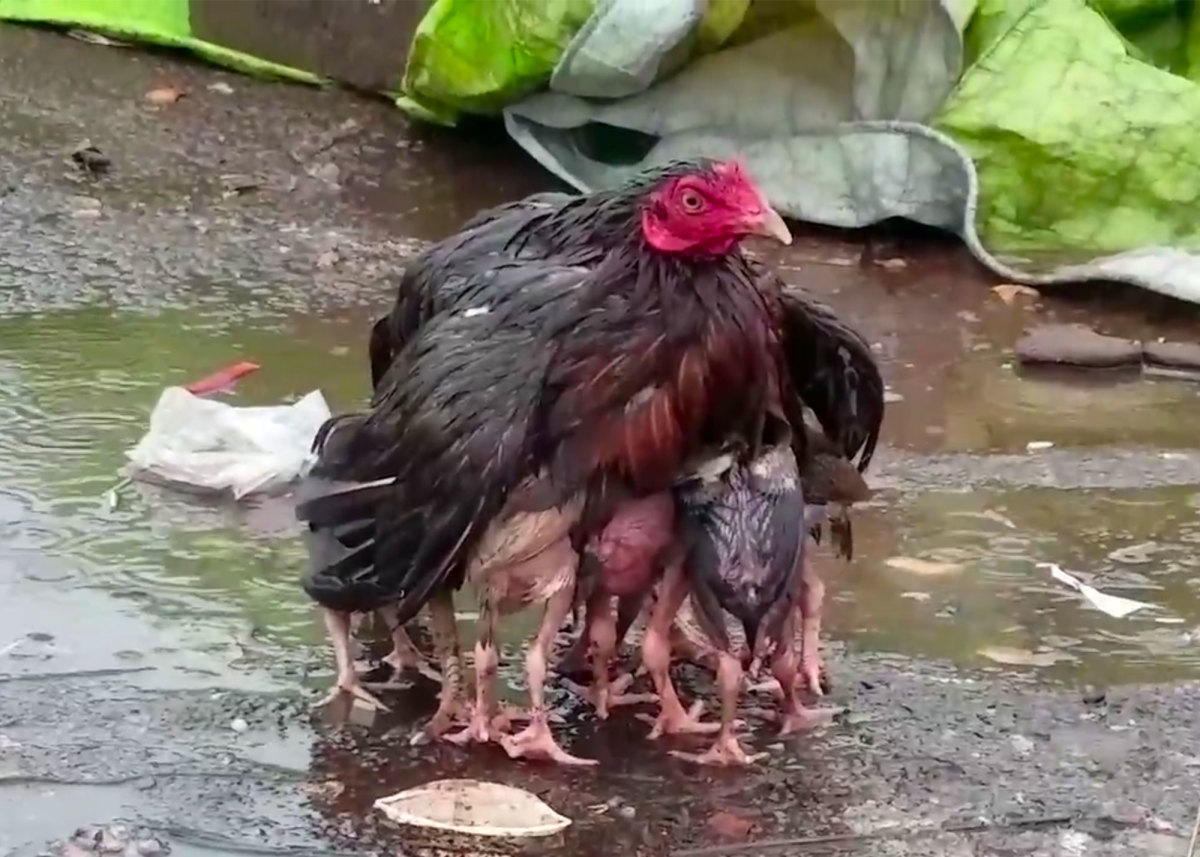THE IMPORTANCE OF WARM, LOVING PARENT-CHILD RELATIONSHIPS

HOW WARM, LOVING PARENT-CHILD RELATIONSHIPS ARE BENEFICIAL TO CHILDREN
This hub is in response to the request ARE YOU HAVING A LOVING RELATIONSHIP WITH YOU PARENTS by sister hubber, escobana.
It is of paramount importance to have a warm, loving relationship with one's parents. After all, parents are the people that a child and/or children should be the most comfortable and free with. A child and/or children should be free to be themselves around their parents without fear of criticism and/or disapproval. In essence, a child and/or children should be their freest and most unencumbered self around their parents.
Children are the happiest and most secure when they have a warm, loving relationship with their parents. Parents, after all, are the first people that children interact with in an environment. If the primary relationship is warm, loving, and accepting, children impart this into their friendships and other future relationships.
Having a warm, loving relationship with one's parents makes a child feel more self-confident. Also such a relationship causes a child to have a high concept of self-worth and feel that he/she is important and valuable to the parents. Children who have warm, loving relationships with their parents are the least likely to indulge in deleterious activities such as gangs and/or other forms of delinquency.
Studies repeatedly substantiate that children who join gangs often have unavailable, uninvolved, and unloving parents. Such parents do not have time for their children or view them as in the way. Since those children do not have warm, loving relationships with their parents, they seek parental attention and affection elsewhere.
Many children who do not have warm, loving relationships with their parents often seek such warmth and loving elsewhere but oftentimes quite dire and negative results. Many girls who have unavailable, cold, nonnurturing, and distant parents often seek affection from the first available source. Oftentimes, the particular "source" in question is looking for a momentary thrill. Such girls do not realize this, thinking that they are being offered love but they are highly mistaken. They realize too little and often too late what they have received is a temporary thrill and nothing more.
Educators, educational psychologists, psychologists, and other social scientists have emphasized repeatedly the benefits and importance of warm, loving parental relationships in a child's development. Such studies have shown that children who have warm, loving relationships with their parents have more self-confidence and thrive emotionally, mentally, and psychologically than their counterparts who do not have such relationships. That is an undeniable fact of life.
Nothing is more morale boosting for a child and/or children than to have parents that they have a rapport with. It is good to have parents that have your back and support in good and bad times. It is also relaxing to have parents that one can discuss anything imaginable and seemingly outlandish without fear and angst.
Have you ever noticed that the parents who are warmest and most loving are the ones whose homes are crowded with their children's friends? People tend to gravitate towards warm and loving people and stay away from those who are cold, unavailable, and distant. No one, not even their own children, wants to be around cold, unavailable, and distant parents. Such parents are psychologically demoralizing to say the least.
Children who have cold, unavailable, distant, and disapproving parents tend to walk on eggshells with such parents. They do not know how to act nor what to say because such parents usually react quite negatively. Such children feel that they have to be "on" around their parents 24/7/365 in order to obtain their cursory approval at best.
Children find excuses to stay away from cold, unavailable, distant, and/or disapproving parents. Many find other parenting models who genuinely show them warmth and affection whether it is grandparents, uncles, aunts, and/or other such models. As many become older and adults, they either cut off all ties with their parents and just merely become estranged from them, seeing them when absolutely necessary.
Children with cold, unavailable, distant, disapproving, and/or otherwise unsupportive parents feel unwanted and unimportant. They act out their frustration in myriad ways. Some become antisocial and withdrawn, feeling out of place in the societal structure. Others do negative things to get attention and love. Many more become bullies, projecting their anger and frustration regarding their familial situation unto others. Still there are those who present a false sense of bravado to mask their insecurities.
Children with unloving parents simply do not thrive. They are frequently left to their own devices and have to fend for themselves, particularly emotionally. They become cold, unloving people because that was their parenting models. Parents who are unloving often learn that pattern from their own parents and so on down the line, hence it is a generational thing.
However, I am digressing too far from the subject at hand. Children who have warm, loving relationships with their parents develop good social skills. They feel at ease with their parents which is transferable to other relationships. They feel worthy in themselves which makes them quite comfortable in relating to others. They also have a respect and sincerity regarding interfacing with others and relationships.
People who have warm and loving parent-child relationships are often the happiest psychologically. There is something uplifting when one is comfortable being with his/her parents. Those who have such a relationship have human security blankets (parents) so to speak. They know that when circumstances, situation, and other factors are less than positive, they always have their parents to go and/or remember the encouraging, kind, loving words their parents said to them.
Children who have warm, loving relationships with their parents do not act in negative ways to get attention. They know that they have the prerequisite attention and love that they need from their parents. They learn to respect others and to treat them with the kindness they deserve. They are also nonjudgmental and accepting of everyone, regardless of difference, knowing that they are worthwhile people and have something of importance and significance to contribute to the table. In essence, they learn to accept people unconditionally.
Children who have warm, loving parents are not afraid to fail because their parents will tell them to try again. They know that they can be less than perfect and even fall from grace and they will be loved nevertheless. They know that mistakes and errors are part of the learning process in life and is nothing to be afraid of. They are secure with the fact if they fail, it is not a damnable, mortal sin, they are still loved by their parents, and they can move on.
Warm, loving parents also love and respect their children even if the latter's lifestyle is diametrically different from theirs. These parents realize that their children are individuals, not mere appendages of them that they can mold into their image and likeness. They know that their children have different desires, goals, opinions, and wants from theirs and support such differences as long it is harmful to others.
Children who have warm, loving relationships with their parents want their parents around them even as they became adults. They want to include their parents in their lives. In fact, at that stage, their parents ACTUALLY become more of a FRIEND, instead of being just a parent. Since these parents consider their children to be adults and treat them as such, these relationships become even closer with time.
In summation, it is important to a child's development and psychological well being to have a warm, loving relationship with his/her parents. After all, parents are the ones that a child should be the freest and most comfortable with. Parents are the people whom a child should go to in any situation and be free to discuss any subject without any recrimination.
Children who have less than warm, loving relationships with their parents tend to gravitated to deleterious and delinquent activities in order to be accepted and have self-worth. They also become bullies to vent their anger and feeling of low self worth unto others. Many others become withdrawn, feeling that they have nothing to contribute.
Nothing is more priceless than to have a warm, loving relationship with one's parents. Parents are after all, the child's first interactors in society. If one does not have a warm relationship with one's parents, what else is more important than that? Nothing!
© 2012 Grace Marguerite Williams








